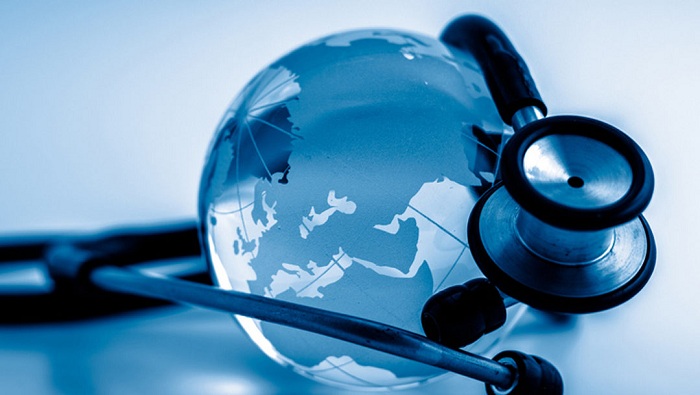The Netherlands discussed its new strategy for Global Health with WHO on Thursday and called for deeper coordination with the Organization to improve global health – aiming to strengthen health systems at home and worldwide, better prepare for pandemics and address the impact of climate change on public health.
The presentation of the Dutch Global Health Strategy 2023-2030: “Working together for health worldwide” came during a full day of strategic dialogue in which WHO and the Netherlands reflected on their longstanding partnership and set a way forward for their shared priorities.
Led by Mr Gerard Steeghs, Director Multilateral Organisations and Human Rights, Mr Joris Jurriëns, Head of the Health and AIDS Division at the Ministry of Foreign Affairs, and Mr Roland Driece, Director for International Relations at the Netherlands’ Ministry of Health, Welfare and Sport, the delegation indicated that in the coming year, the Netherlands will scale up its efforts in the field of global health through the new Strategy.
The Strategy aims to contribute in a coordinated and targeted way to improving public health around the world, including in the Netherlands. Stressing its excellent partnership with WHO, the Netherlands welcomed the opportunity to strengthen the collaboration through the new Strategy.
On Thursday, the Netherlands also announced its intention to provide solid, predictable, mostly flexible, multi-year financing to WHO, building on its longstanding support of the Organization. This commitment consolidates the Netherlands’ position as a top contributor of flexible funds – resources that enable a stronger result driven WHO to fulfil its mandate and work most effectively for the health of everyone.
From new conflicts to resurging diseases, the global community faces increasingly complex health challenges. Against this backdrop, WHO highlighted the role of the Netherlands as a courageous partner, advocating for equal access to health services to all people, and welcomed its renewed commitment to global health under the new Strategy.
“Your voice, your advocacy for other countries – even in times of shrinking economies and difficult crises, to keep the focus on global health – are of critical importance, and WHO looks forward to working with you as you go ahead with this brave global health strategy,” WHO Chef de Cabinet Dr Catharina Boehme said.
The meeting touched on shared priorities in strengthening national health systems, access to medicines and local manufacturing, planet health – including One Health – as well as antimicrobial resistance, environmental health, and health and human rights, including access to sexual and reproductive health for all girls and women.
Joining forces to promote equitable access to medicines and other health technologies, Mr Driece and Dr Mariângela Batista Galvão Simão, WHO Assistant Director-General, Access to Medicines and Health Products, signed a letter of intent to co-host the second edition of the World Local Production Forum in June 2023. The Forum draws high-level, global attention and sparks discussions on challenges and opportunities related to local production of pharmaceuticals, vaccines and other health products.
WHO also welcomed the Netherlands’ support for WHO’s work on health emergencies, including the country’s engagement in international negotiations to boost pandemic preparedness and response, and build the world’s health architecture with a strengthened WHO at the centre.
The Netherlands is a key supporter and strategic partner of WHO. It funds crucial activities in the areas of sexual and reproductive health, water and sanitation, mental health in emergencies, emergency preparedness, tuberculosis, One Health, primary health care, antimicrobial resistance, while facilitating cooperation with top Dutch institutions.
Between 2020 and 2021, the Netherlands provided over US$ 94 million to WHO, including US$ 16 million in fully flexible core voluntary contributions, making it the fourth-largest flexible contributor to the Organization. Such support allows WHO to be agile and strategic in its efforts to reach the Triple Billion targets and help countries improve the health and well-being of their populations.
The Netherlands is also the fourth-largest contributor to WHO’s Contingency Fund for Emergencies, which enables WHO to respond rapidly to disease outbreaks and other health emergencies around the world.


















